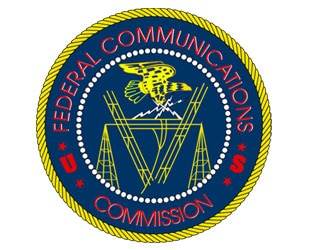Procedurally defective.
That’s the reason why a Petition for Reconsideration of an $11,000 forfeiture order filed Aug. 22 with the FCC by a multichannel video programming distributor (MVPD) was tossed Dec. 22 by the Commission.
 Full Channel TV sought reconsideration of a forfeiture order issued by the FCC’s Media Bureau on July 25, which affirmed the bureau’s prior finding that Full Channel “willfully and repeatedly violated the Commission’s equal employment opportunity (EEO) rules by failing to comply with the Commission’s recruitment, self-assessment, EEO public file report, and public inspection file requirements.”
Full Channel TV sought reconsideration of a forfeiture order issued by the FCC’s Media Bureau on July 25, which affirmed the bureau’s prior finding that Full Channel “willfully and repeatedly violated the Commission’s equal employment opportunity (EEO) rules by failing to comply with the Commission’s recruitment, self-assessment, EEO public file report, and public inspection file requirements.”
It seems the Petition for Reconsideration was erroneously filed, however, under Section 1.429 of the Commission’s rules. This governs petitions for reconsideration in notice and comment rulemaking proceedings and does not apply to enforcement proceedings.
“It therefore is procedurally defective,” the FCC noted.
It turns out that the filing gaffe had little bearing on any reconsideration of the matter by the Commission.
“Were we to reach the merits of Full Channel’s petition, we would find no basis for reconsideration,” the FCC said in its Memorandum Opinion and Order. “Reconsideration is appropriate only if the facts or arguments relate to events that occurred or circumstances that have changed since the last opportunity to present such matters, the petition relies on facts or arguments unknown to the petitioner until after petitioner’s last opportunity to present them to the Commission and petitioner could not through the exercise of ordinary diligence have learned of the facts or arguments in question prior to such opportunity, the Commission or Bureau determines that consideration of the facts or arguments is required in the public interest, or the petitioner demonstrates a material error or omission in the underlying order. Full Channel’s Petition satisfies none of these criteria.”
Full Channel sought a reconsideration of facts and arguments previously considered and rejected. As is FCC policy, this is grounds for automatic denial.
Thus, Full Channel’s claim that it did not violate Section 76.75(f) of the Commission’s rules because it decided to “forgo print advertising in the local newspaper” was dismissed because the FCC previously ruled against the MVPD on this claim.
Also dismissed was Full Channel’s assessment that it did not “repeatedly” violate the Commission’s EEO rules.
Full Channel TV was founded in 1965 by John Donofrio and today remains independent, family-owned provider of internet, digital TV and phone services in Rhode Island’s East Bay, run by Donofrio’s daughter, Linda Jane Maaia; son-in-law William C. Maaia; and grandson Levi C. Maaia.





